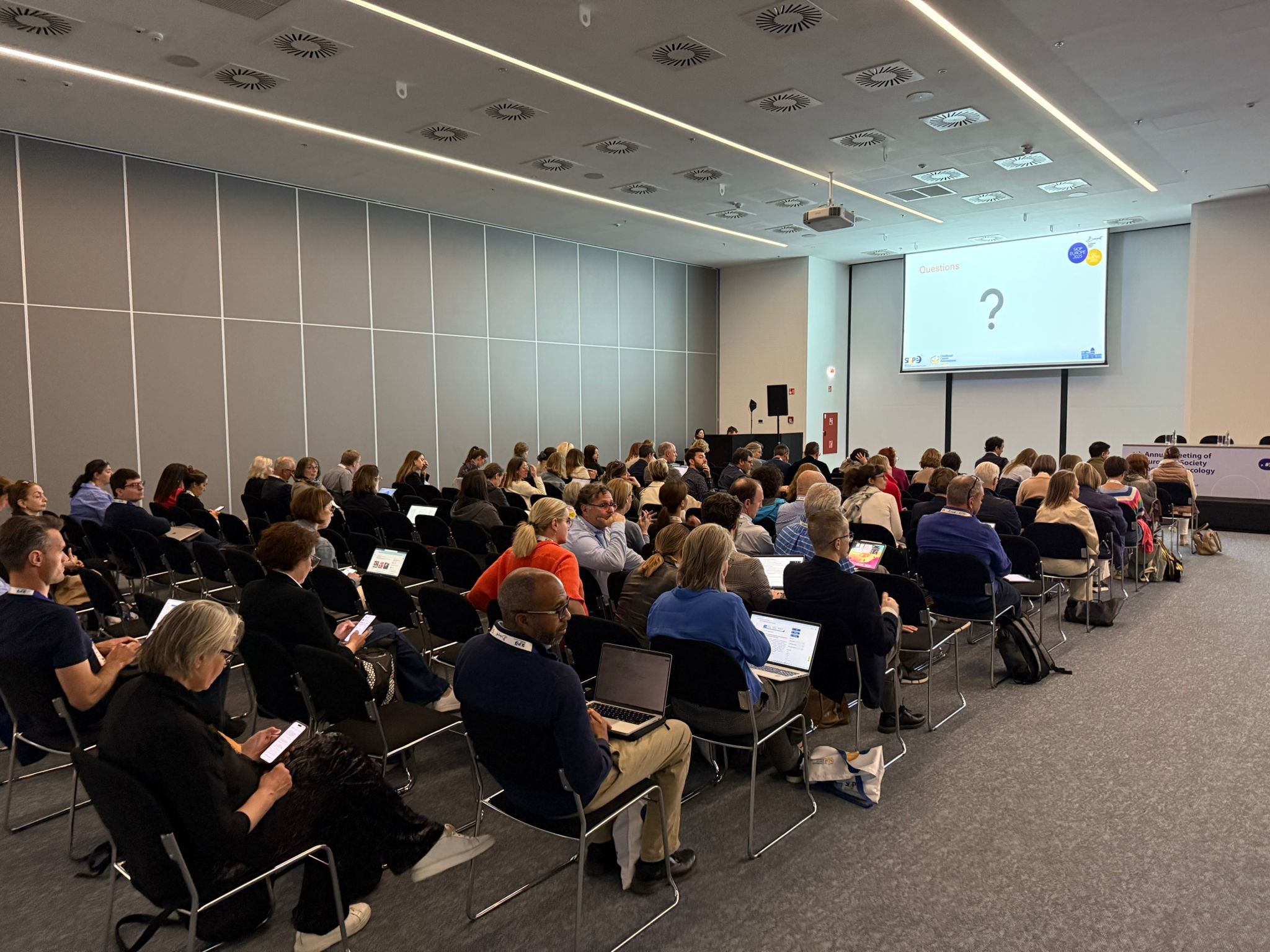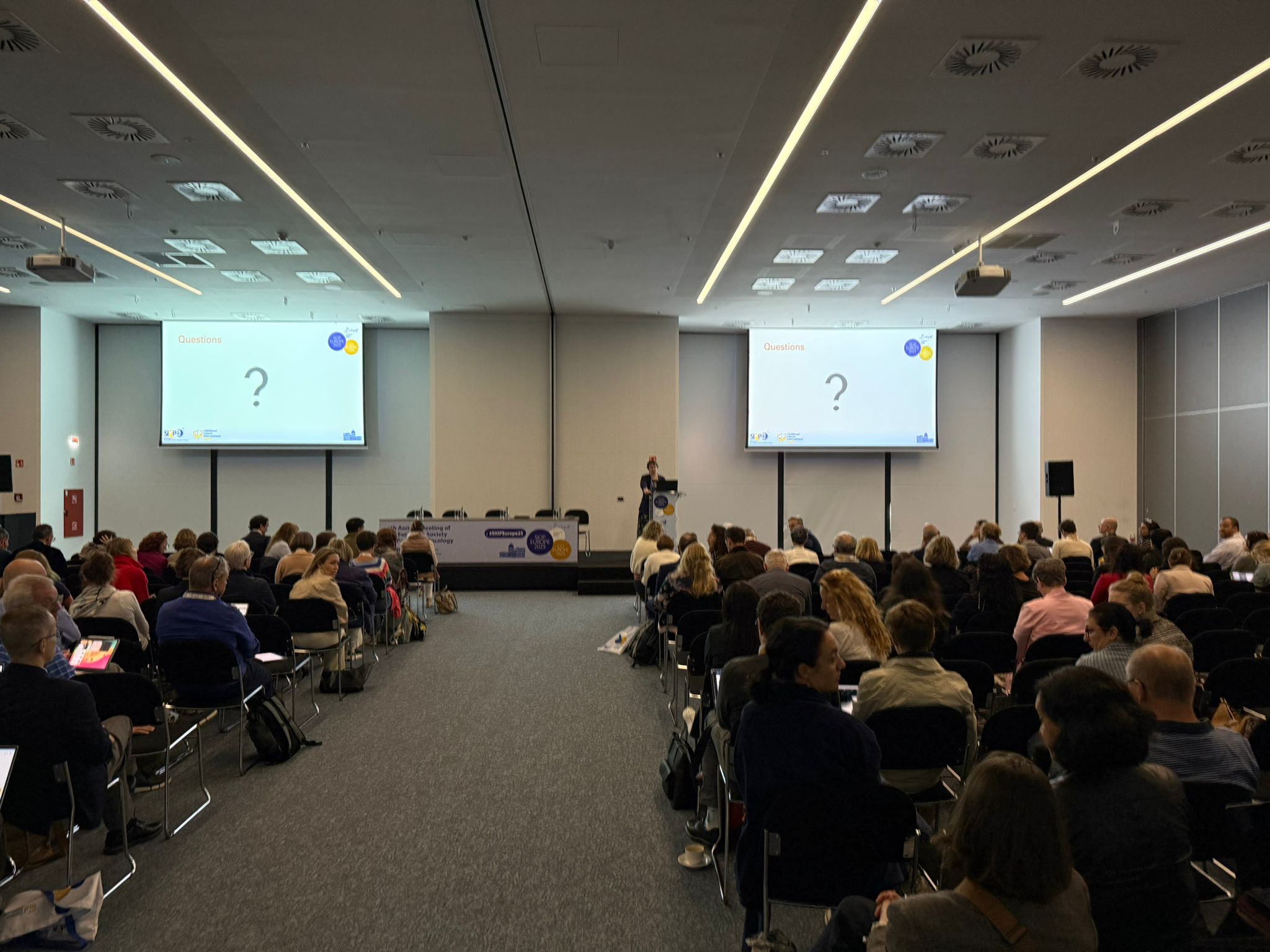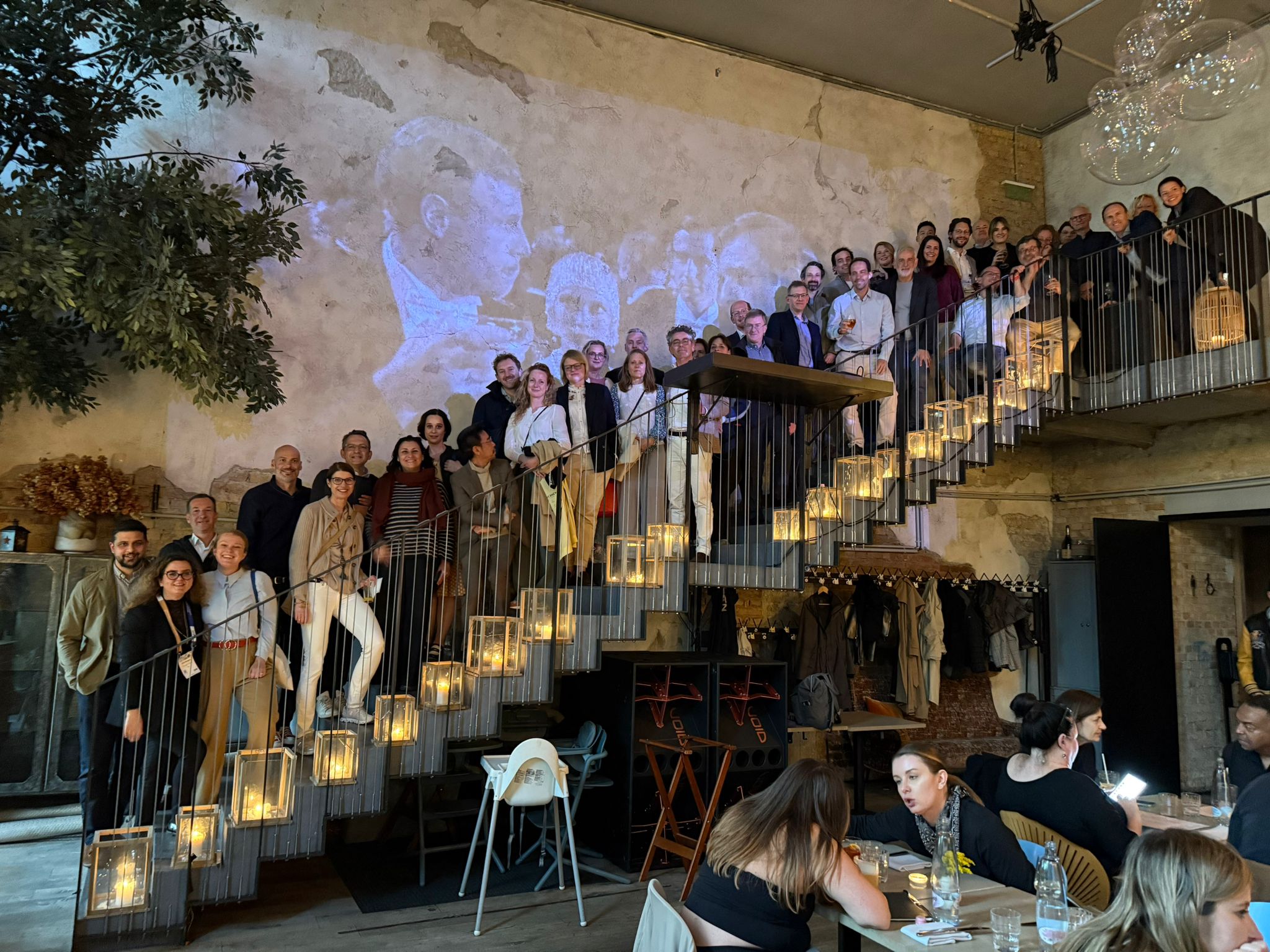15 May 2025
Budapest, 15 May, 2025
The EpSSG Spring meeting has been organised within the 6th Annual Meeting of the European Society for Paediatric Oncology in Budapest May 12-16, 2025. A full dedicated EpSSG Scientific day was held on Thursday May 15.
The programme included the Assembly for the members and 3 open sessions.
There were more than 150 attendants for each of the scintific EpSSG sessions:
-EpSSG Trials Update (J. Chisholm, JHM Merks)
-Rethinking new treatments for soft tissue sarcomas (W. Breunis, M. Casanova)
-European Pediatric Sarcoma Network EuroPedSarcNET: Liquid Biopsy and Translational Research in Sarcoma - How to make it real, how to bring it into clinic? (chair M. Sparber-Sauer, B.de Wilde)
During the FaR-RMS session, Sara Wakeling, EpSSG parent provided advice on the key messaging, tone, style, information provision and language requirements in the creation of a video designed to explain the radiotherapy arm of the trial with a view to enhancing recruitment.The audience watched the final video which had a great success underlining once more the importance of the voice of parents and patients becoming increasingly recognised in the formation of patient-centric research questions.
The programme included the Assembly for the members and 3 open sessions.
There were more than 150 attendants for each of the scintific EpSSG sessions:
-EpSSG Trials Update (J. Chisholm, JHM Merks)
-Rethinking new treatments for soft tissue sarcomas (W. Breunis, M. Casanova)
-European Pediatric Sarcoma Network EuroPedSarcNET: Liquid Biopsy and Translational Research in Sarcoma - How to make it real, how to bring it into clinic? (chair M. Sparber-Sauer, B.de Wilde)
During the FaR-RMS session, Sara Wakeling, EpSSG parent provided advice on the key messaging, tone, style, information provision and language requirements in the creation of a video designed to explain the radiotherapy arm of the trial with a view to enhancing recruitment.The audience watched the final video which had a great success underlining once more the importance of the voice of parents and patients becoming increasingly recognised in the formation of patient-centric research questions.



